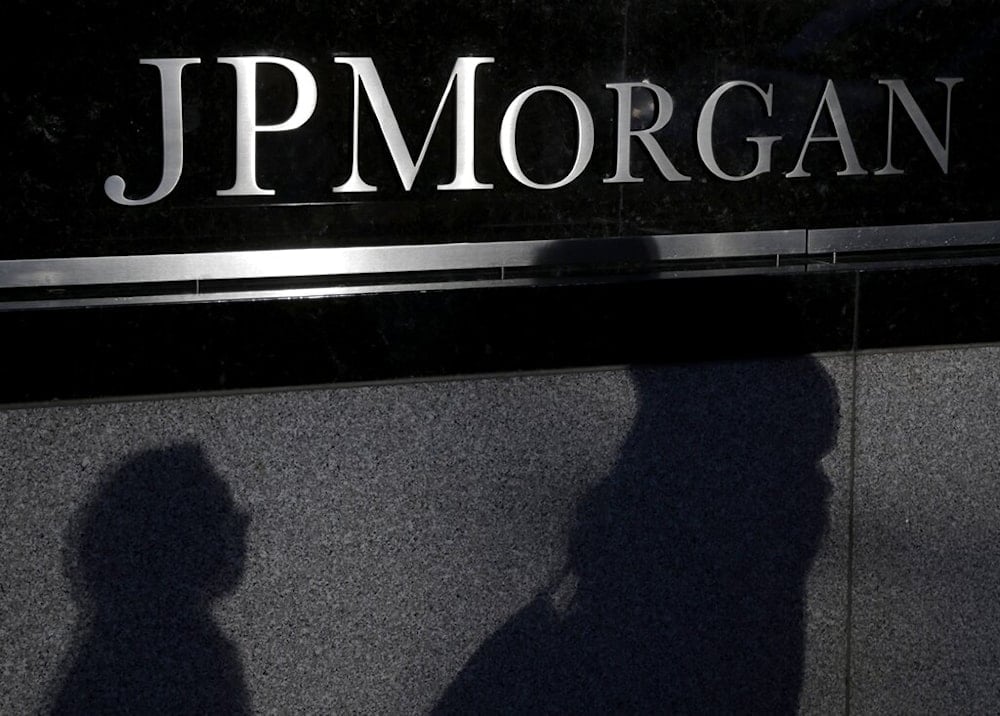JPMorgan slashes 'Israel's' 2024 GDP forecast to 0.5% as war rages
The bank's revised outlook comes as "Israel" faces a mounting security challenge, with ongoing exchanges of fire between Israeli forces and the Lebanese Resistance along the Lebanese-Palestinian border.
-

Shadows of pedestrians are cast over a sign in front of JPMorgan Chase & Co. headquarters in New York, Tuesday, November 19, 2013. (AP)
JPMorgan has significantly lowered its GDP growth forecast for "Israel" in 2024 and 2025, citing the occupation's deteriorating security situation and an intensifying multi-front war.
The global financial firm announced on Friday that it had cut its 2024 GDP growth projection for "Israel" to 0.5% from a previous estimate of 1%, while adjusting its 2025 forecast down to 3.3% from 3.7%.
The bank's revised outlook comes as "Israel" faces a mounting security challenge, with ongoing exchanges of fire between Israeli forces and the Lebanese Resistance along the Lebanese-Palestinian border, adding to the strain of the ongoing war with the Palestinian Resistance in Gaza.
JPMorgan noted that the war on Lebanon, which began in late September, has prompted a reassessment of "Israel's" economic stability.
"As the security situation remains challenging following the opening of the northern front, we have lowered our forecast of fourth-quarter GDP growth to 2.0% from 2.5%," JPMorgan stated.
The bank noted that it had also revised its third-quarter growth estimate to account for the economic impact of the intensifying war.
Read more: 'Israel's' budget deficit could surge to 8%: Israeli media
Economic downfall
Since the start of "Israel's" genocidal campaign in Gaza, the global movement for divestment from "Israel" has gained momentum.
With each divestment campaign and each institutional withdrawal of support, the regime's economic network grows weaker.
Foreign investment in Israeli equities has declined to its lowest point in a decade, and tech companies like Samsung Next have closed their Israeli-based operations, amplifying the regime's economic isolation.
Moreover, "Israel's" budget deficit has widened to 8.5% of GDP, exceeding its 2024 target of 6.6%, forcing austerity measures including a proposed increase in the value-added tax to 18% by 2025.
Foreign exchange reserves dropped to $216.074 billion by the end of October 2024, marking a decrease of $4.303 billion from September's record high, according to data released by the Bank of Israel.
Credit rating downgrades have led to higher borrowing costs, and the debt-to-GDP ratio has climbed to 67%.
Read more: 'Israel' faces economic instability as capital flight surges 62%

 3 Min Read
3 Min Read








